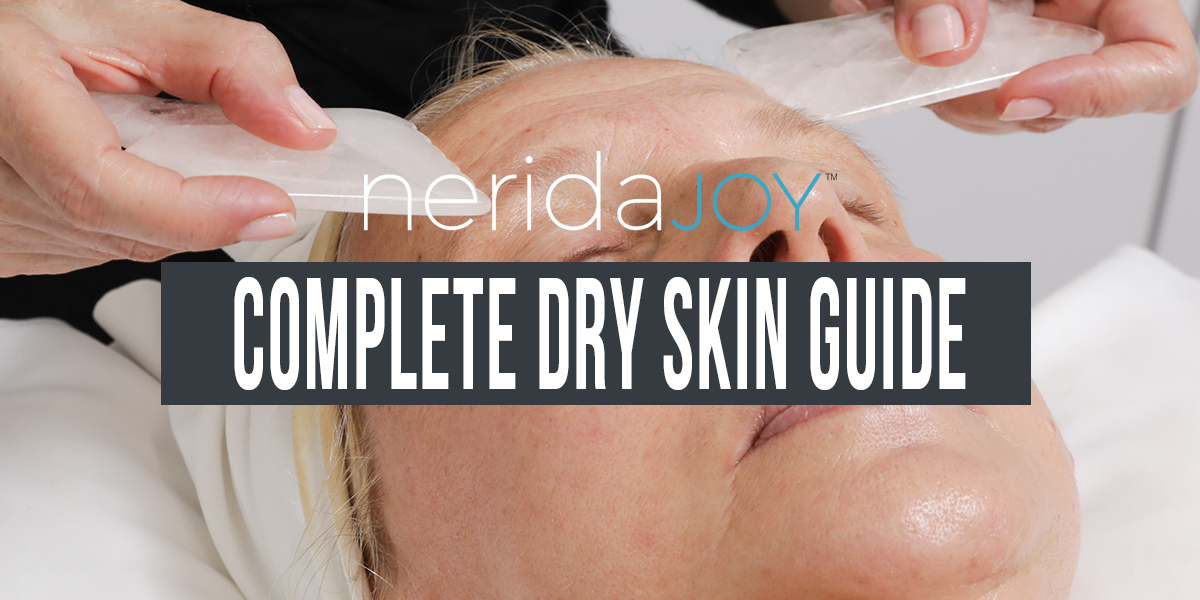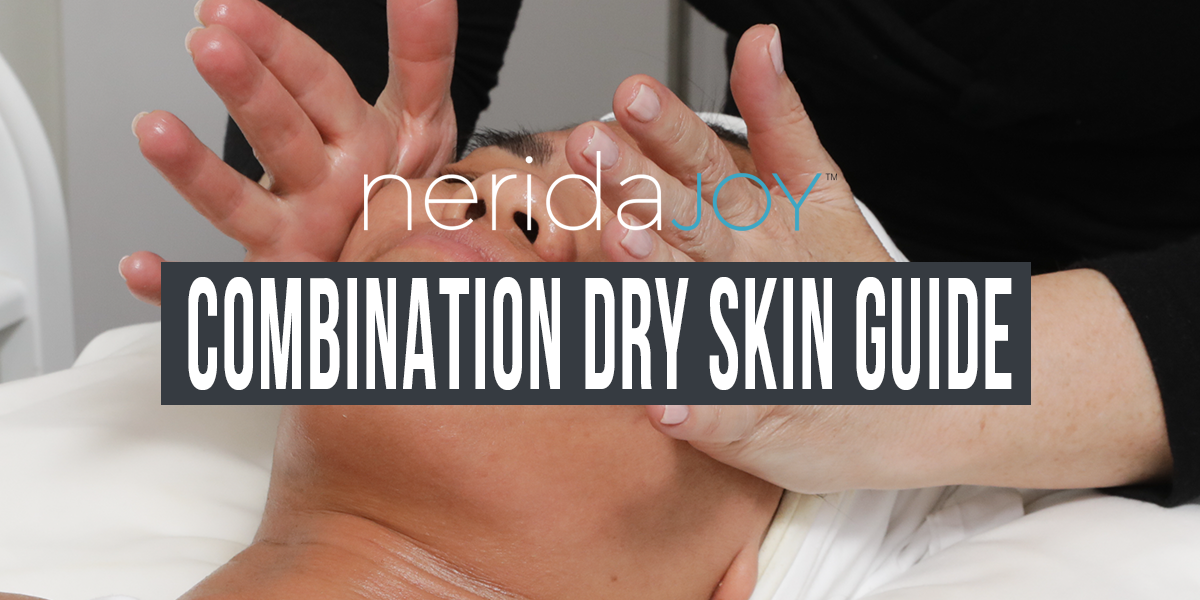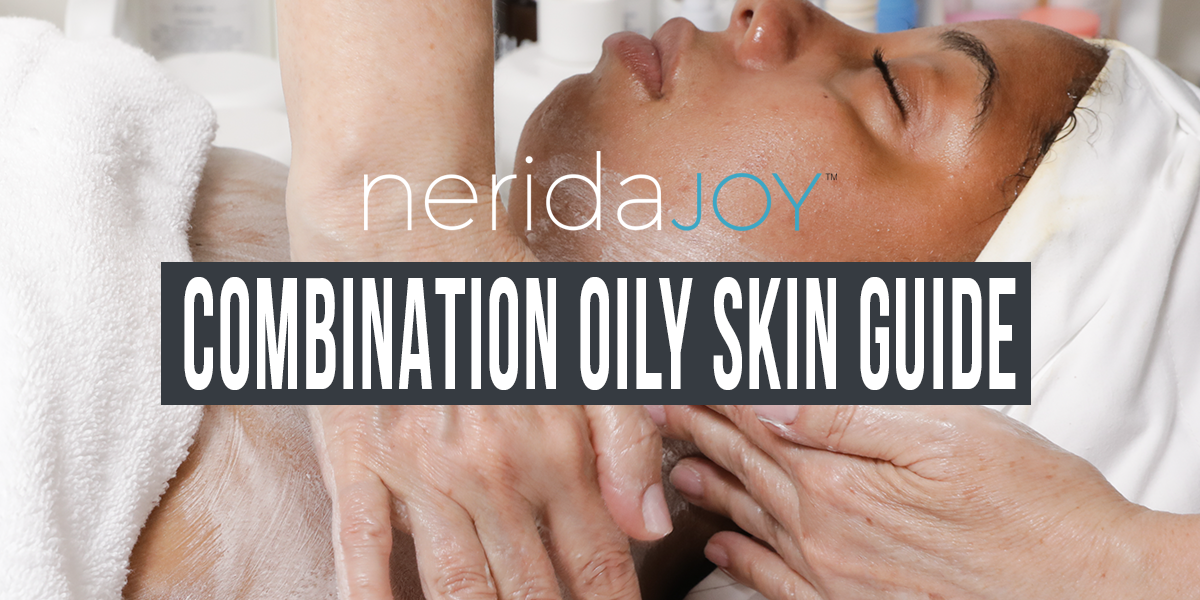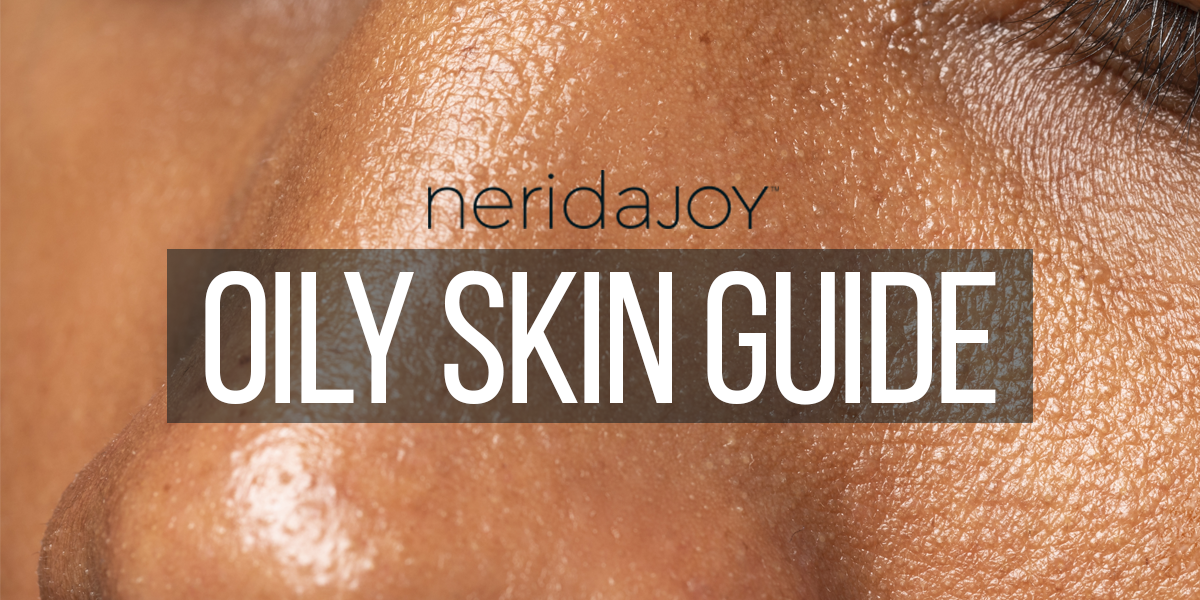What sub-conditions affect dry skin?
Sensitivity, ruddiness, dilated capillaries, eczema and dermatitis. You may experience some flakiness, tightness or sunspots. Wrinkles also tend to be deeper because of the lack of oil.
Is there an advantage to having a dry skin?
Your skin will have naturally small pores, and you won’t be prone to congestion, pimples and pustules, or painful hormonal nodules.
Is there anything I should avoid?
It’s important not to over-exfoliate your skin by using strong acids or scrubbing granules. Keep your exfoliation to every 7–10 days and use a mild, non-irritating exfoliant that will gently buff the surface of the skin and absorb dead cells.
It’s also good to incorporate healthy oils such as avocado, certain nuts and fish oils into your diet to support the skin, and to make sure that you’re drinking plenty of fluids throughout the day.
What are the essential products I should use?
A really good hydrating cleanser to keep your skin soft and supple, a treatment serum or occlusive moisturizer that offers both protection and hydration, and a mineral sunblock that will protect your skin from sun damage.
What’s the best cleanser for my skin type?
A non-foaming gel, gelée, oil, milk or cream cleanser – one that not only thoroughly cleans the skin without stripping it, but also offers a protective layer of moisture to keep it feeling soft and supple.
Being thorough with your cleansing is important for every skin type. Make sure to massage your cleanser into your face for a good 30 seconds, particularly in the evenings, and then remove it with a clean, warm, wet washcloth.
What mask should I use?
A hydrating mask that will keep your skin healthy and give it the nourishment it needs. Choose something that is more occlusive and can be left on the skin without needing to be rinsed off.
What are the best serums?
You want serums that are hydrating and nourishing. Hyaluronic acid is a great ingredient to go for because it coats the cells and stops moisture from escaping. Similarly, squalene, suma extract, shea butter, allantoin and glycerin are all gentle on the skin and will cover it in a soothing and moisturizing protective layer.
To feed and brighten the skin, look for serums containing arnica and licorice extract, which also support the capillaries; carrot juice, which is a powerful antioxidant rich in vitamins A, C, E and K; and vitamin C itself, another potent antioxidant that fights free radicals, increases cell turnover and acts as an extra level of protection against sun and other environmental damage.
A retinoid is also good because it boosts the production of collagen and elastin while buffering back the skin’s outer layer, thereby improving the appearance of lines and wrinkles while building a strong support system for your skin. A combination of retinol and retinyl palmitate is ideal, because it’s gentle enough to be used regularly and works across all the layers of the skin.
What’s the best moisturizer?
An occlusive moisturizer that forms a film on the skin to protect it and keep it hydrated is very important. You really need to be able to feel that layer of cream under your fingertips when you touch your face because that’s what protects your skin from the environment.
Again, you want something with hyaluronic acid, squalene, suma extract, shea butter, allantoin or glycerin to keep your skin hydrated, and arnica, licorice extract or vitamin C to nourish and brighten it.
If you’re not using a retinoid serum, there are also some fantastic retinol moisturizers to choose from.
And what’s best for my eye area?
A good, moisturizing eye cream is vital because the skin here is more delicate with no sebaceous activity at all. Apply the cream every morning and evening to keep this area hydrated.
What are the most beneficial movements to support my skin?
Massaging in your products with both circular and upward motions will help improve your circulation, bring oxygen to the blood and stimulate muscle tone. A lot of dry skins also tend to be more mature, so these movements are great for boosting and lifting the skin.
What are the best tools to use?
Because massage is so important for drier skin types, gua sha and cryo sticks really help you get those lifting movements that will keep the skin looking hydrated, healthy and dewy. You can also use a hand-held muscle-stimulating device two to three times a week to further lift and tone the skin.
What are the three key things that will keep my skin looking healthy?
A good cleanser that keeps the skin hydrated, a boosting and hydrating serum, and a physical sunblock of at least SPF 40 to protect the skin from harmful UVA and UVB rays that loosen the skin and cause sun damage.
How often should I get a facial?
A monthly facial is great, as regular massage with lots of lifting, upward motions will help keep your skin looking healthy and pretty. If once a month feels like too much, aim for one at least every three months.
And what treatments would be good for me?
Boosting antioxidant treatments are great for addressing sun damage or brown spots, lifting the skin and supporting the capillaries, especially on a thinner, more mature skin. You can also choose treatments that use stronger retinoids or AHAs than you’ll find in your homecare products to help stimulate fibroblast cells and boost the production of collagen and elastin to keep the skin strong and lifted.







